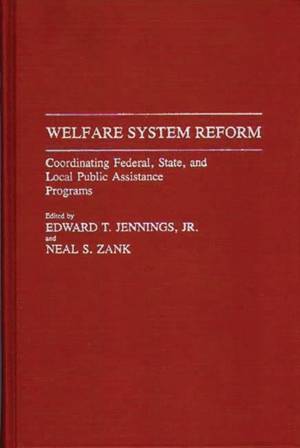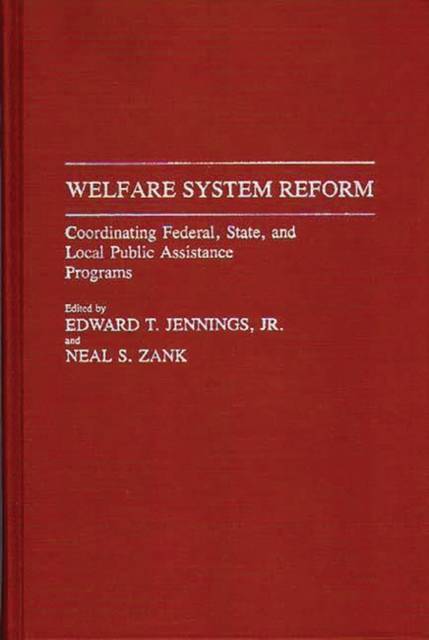
- Afhalen na 1 uur in een winkel met voorraad
- Gratis thuislevering in België vanaf € 30
- Ruim aanbod met 7 miljoen producten
- Afhalen na 1 uur in een winkel met voorraad
- Gratis thuislevering in België vanaf € 30
- Ruim aanbod met 7 miljoen producten
Welfare System Reform
Coordinating Federal, State, and Local Public Assistance Programs
Edward T. Jennings, Neal S. ZankOmschrijving
The nation's $200 billion public assistance system is a fragmented array of policies, programs, and organizations that often serves its clients poorly. In this book, experts from universities and think tanks and practitioners from all levels of government analyze serious coordination problems in the system. Cutting through the plethora of agency programs and regulations, these authorities offer practical reforms to make the system more effective, accountable, and efficient. They provide widely sought recommendations that will be useful to managers, students, scholars, experts, policymakers, and activists concerned with welfare reform and the future of public assistance programs.
The essays in the book address the coordination problem for all types of public assistance programs for all age groups and types of problems. The book provides specific analyses of the Job Opportunities and Basic Skills program under the Family Support Act, job training and employment programs under the Job Training Partnership Act, programs for youth-at-risk, and particular efforts to integrate the delivery of services to public assistance recipients. The authors provide essential information about institutions, processes, and policies at the federal, state, and local levels. They define critical issues and formulate policy and administrative recommendations to improve such critical features as executive leadership, Congressional decision-making, agency management, state government planning and policy development, and local service delivery operations.Specificaties
Betrokkenen
- Auteur(s):
- Uitgeverij:
Inhoud
- Aantal bladzijden:
- 264
- Taal:
- Engels
- Reeks:
Eigenschappen
- Productcode (EAN):
- 9780313284854
- Verschijningsdatum:
- 28/02/1993
- Uitvoering:
- Hardcover
- Formaat:
- Genaaid
- Afmetingen:
- 152 mm x 229 mm
- Gewicht:
- 553 g

Alleen bij Standaard Boekhandel
Beoordelingen
We publiceren alleen reviews die voldoen aan de voorwaarden voor reviews. Bekijk onze voorwaarden voor reviews.











